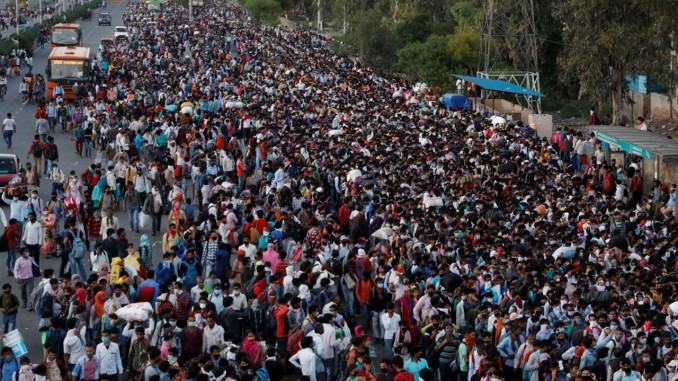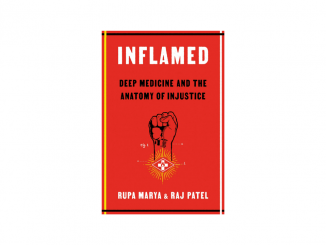
In late March, India implemented one of the world’s most severe lockdowns, shutting down much of the economy and transportation in the world’s second most populous nation.
Economic activity halted, hitting the working class hardest – hundreds of millions barely above subsistence, many with no job and suddenly stranded in big cities with no way to their homes in rural areas. In cities like New Delhi and Mumbai, the wealthy quarantined in leisure, while the poor walked hundreds of miles to their homes or stayed in their cramped quarters, sometimes sleeping eight to a room.
A group of steel workers, laid off from their jobs, were walking all night to their village along a railroad line and fell asleep from exhaustion, probably thinking the trains weren’t running because of the lockdown. At least 16 were killed when a train came by.
In May, the government began softening the lockdown. As workers went back to work, dozens were injured in major chemical and plastics plants. Meanwhile, state governments have actually loosened labor regulations in hopes of stimulating economic activity!
As of June 8, India had confirmed 256,000 total cases of COVID-19, giving it the fourth most cases in the world, but its curve is trending upward, and epidemiologists believe that millions more might be infected.
India is a human catastrophe, as the virus has worsened pre-existing crises in Indian society. But it wasn’t the virus that caused these problems. It was capitalism. Millions of desperate migrants, living like sardines, risking their lives to sustain their lives, tossed about by economic forces and a virus over which they have no control.
featured image credit: Anushree Fadnavis / Reuters




